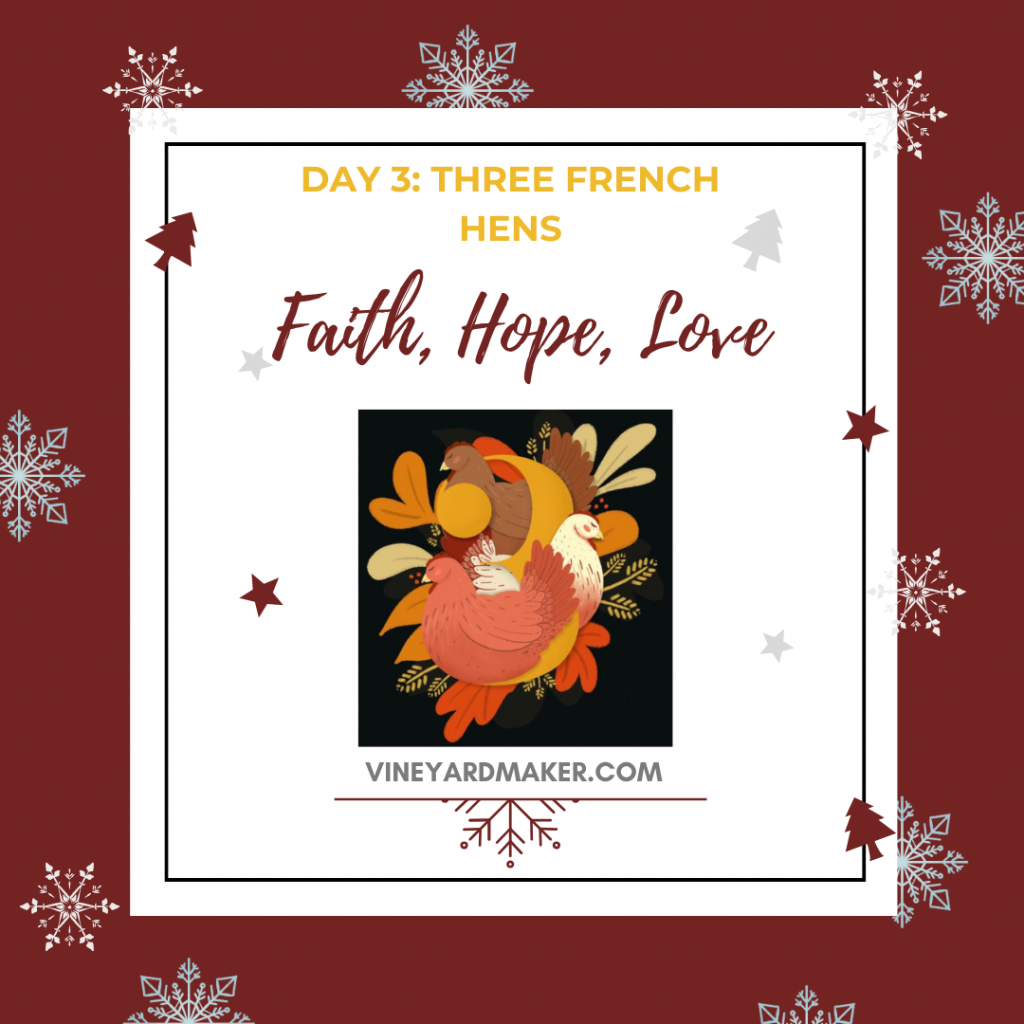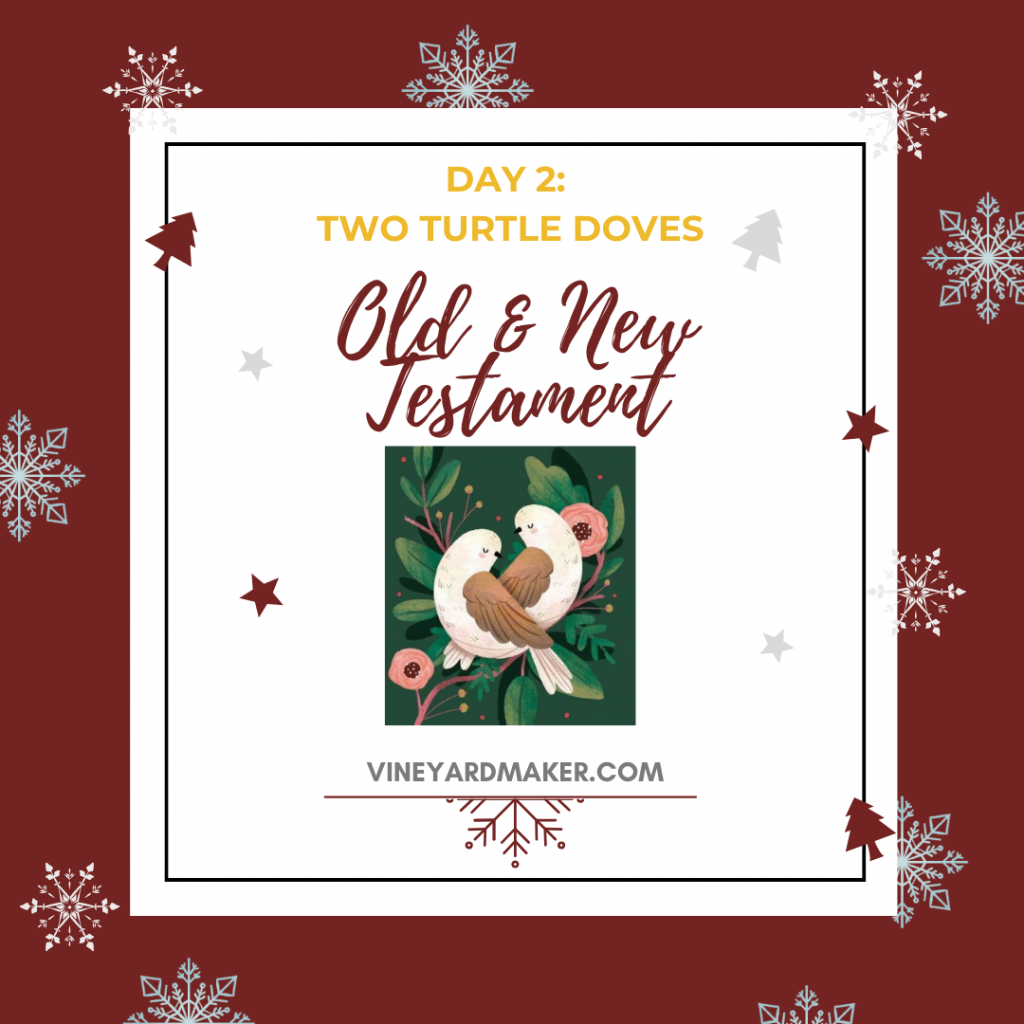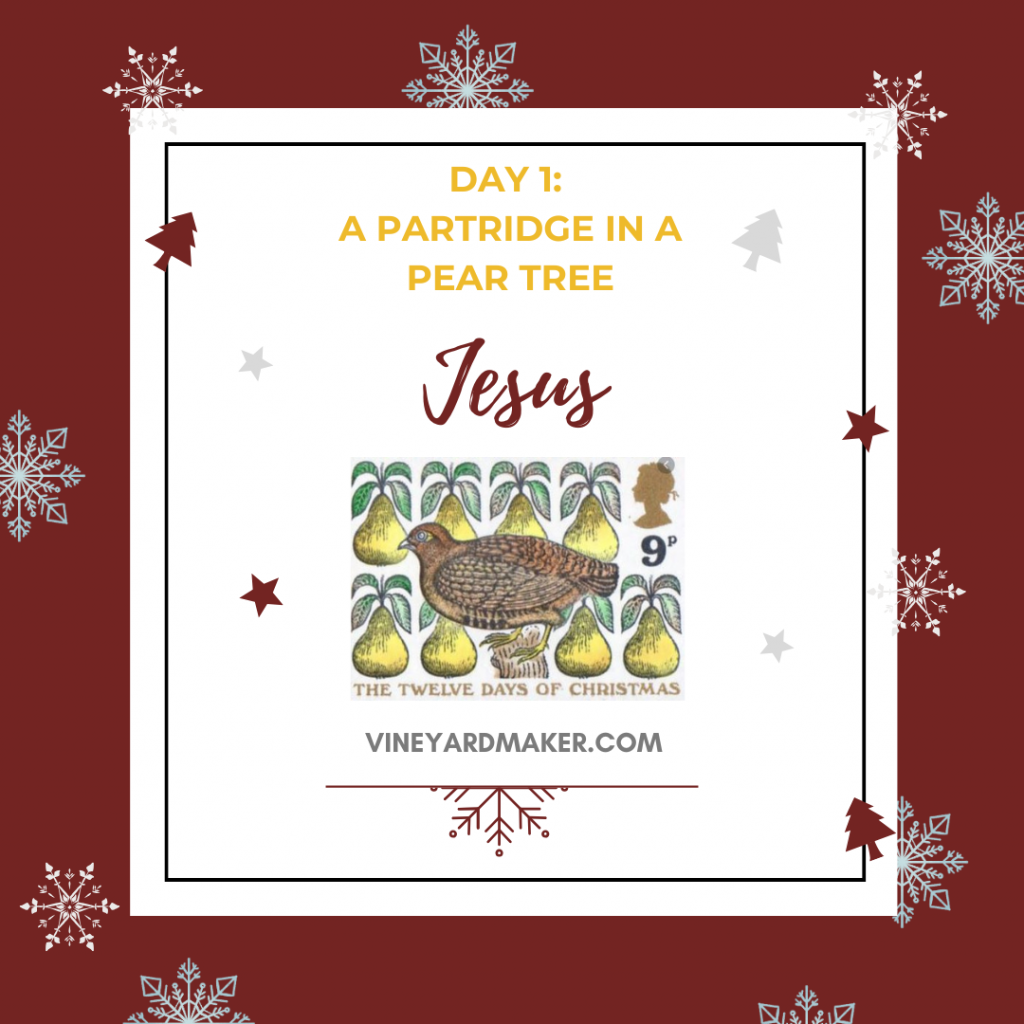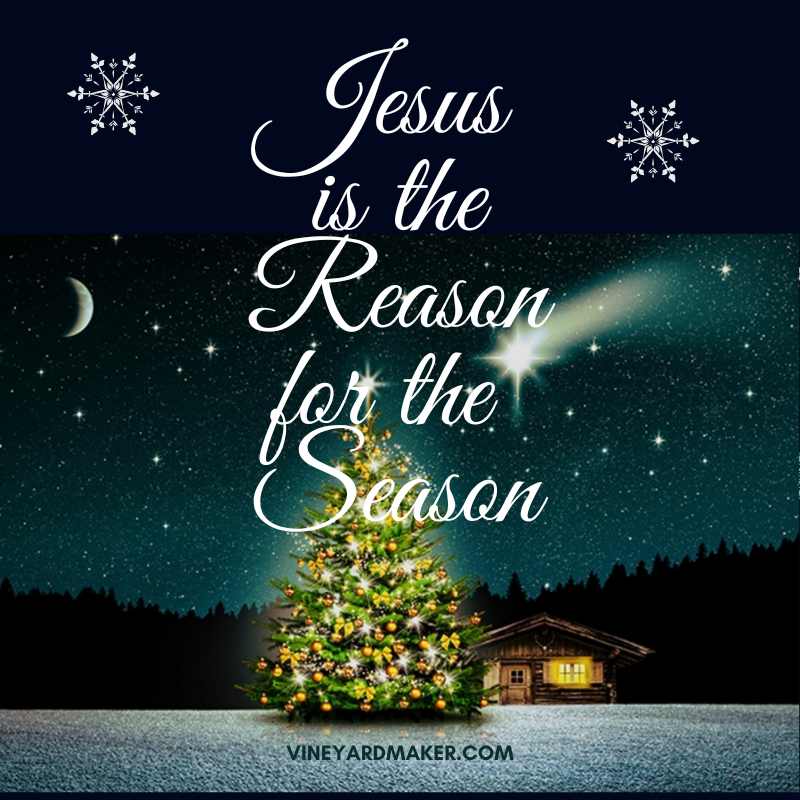
“Now these three remain: faith, hope and love. But the greatest of these is love.” 1 Corinthians 13:13 (NIV)
Reflection:
The three French hens symbolize faith, hope, and love, foundational virtues for the Christian journey. Reflect on how these virtues are growing in your life.
Questions to Ponder:
- Which of these virtues do I need to nurture more?
- How can I share faith, hope, and love with those around me?
The “three French hens” symbolize faith, hope, and love—the foundational virtues highlighted in 1 Corinthians 13:13. These virtues serve as the lifeblood of a believer’s journey, guiding our walk with Christ and shaping our relationships with others.
Faith: Trusting in God’s Promises
Faith is the assurance of things hoped for, the conviction of things not seen (Hebrews 11:1). It’s the bedrock of our relationship with God, calling us to trust in His promises even when circumstances seem uncertain. Faith invites us to step beyond what we can see and rely on God’s character.
Much like the French hens, which were considered a valuable gift in 18th-century France, faith is precious in our spiritual lives. It sustains us through trials and nurtures our connection with the Divine. As we celebrate the birth of Christ, we’re reminded of the profound faith of Mary and Joseph. Their willingness to trust God’s plan, despite its challenges, inspires us to cultivate faith in our own lives.
Hope: Anchored in Christ
Hope is not mere optimism; it’s a confident expectation rooted in the promises of God. This hope anchors our souls (Hebrews 6:19), especially during life’s storms. In a world often overshadowed by despair, hope reminds us that the story isn’t over.
The birth of Christ is the ultimate expression of hope fulfilled. God’s promise to send a Savior came to fruition, offering humanity the assurance of eternal life. As we reflect on this season, hope encourages us to anticipate God’s continued faithfulness. It calls us to be bearers of light, sharing the message of Christ’s love with a world longing for redemption.
Love: The Greatest of These
Paul declares love as the greatest virtue because it is the essence of God’s nature. While faith and hope will find their fulfillment in eternity, love endures forever. It is the bond that unites us with God and with one another.
Jesus’ life exemplifies perfect love. From His humble birth in a manger to His sacrificial death on the cross, Christ demonstrated love that transcends understanding. This love compels us to embody His compassion, grace, and forgiveness in our relationships.
Living Out the Three Virtues
Faith, hope, and love are not abstract ideals; they are active principles that shape our daily lives. Faith calls us to trust God. Hope empowers us to endure and look forward. Love invites us to serve and give selflessly.
As we meditate on the third day of Christmas, let us embrace these virtues in tangible ways. Strengthen your faith by immersing yourself in Scripture and prayer. Share hope with someone who is struggling. Practice love by extending kindness, even when it’s challenging.
May the three French hens remind us of the enduring gift of faith, hope, and love this Christmas season—and inspire us to live these truths every day.
Reflection Questions:
Faith
- What does trusting in God’s promises look like in your daily life?
- Can you think of a time when your faith sustained you through uncertainty or trials?
- How can you cultivate a deeper trust in God, especially in areas where you struggle to let go?
Hope
- What is a promise from God that gives you hope, even during challenging times?
- How does the hope of Christ’s return influence the way you live today?
- In what ways can you share hope with others who may be feeling lost or discouraged?
Love
- How has God’s love transformed your understanding of what it means to love others?
- Are there relationships in your life where you need to extend forgiveness or grace?
- How can you make love the central focus of your actions this week?
Living the Virtues
- Which of these virtues—faith, hope, or love—feels most natural to you? Which one feels the most challenging?
- How can you intentionally practice these virtues during this Christmas season?
- Who in your life exemplifies faith, hope, and love? How can their example inspire you to grow in these areas?



